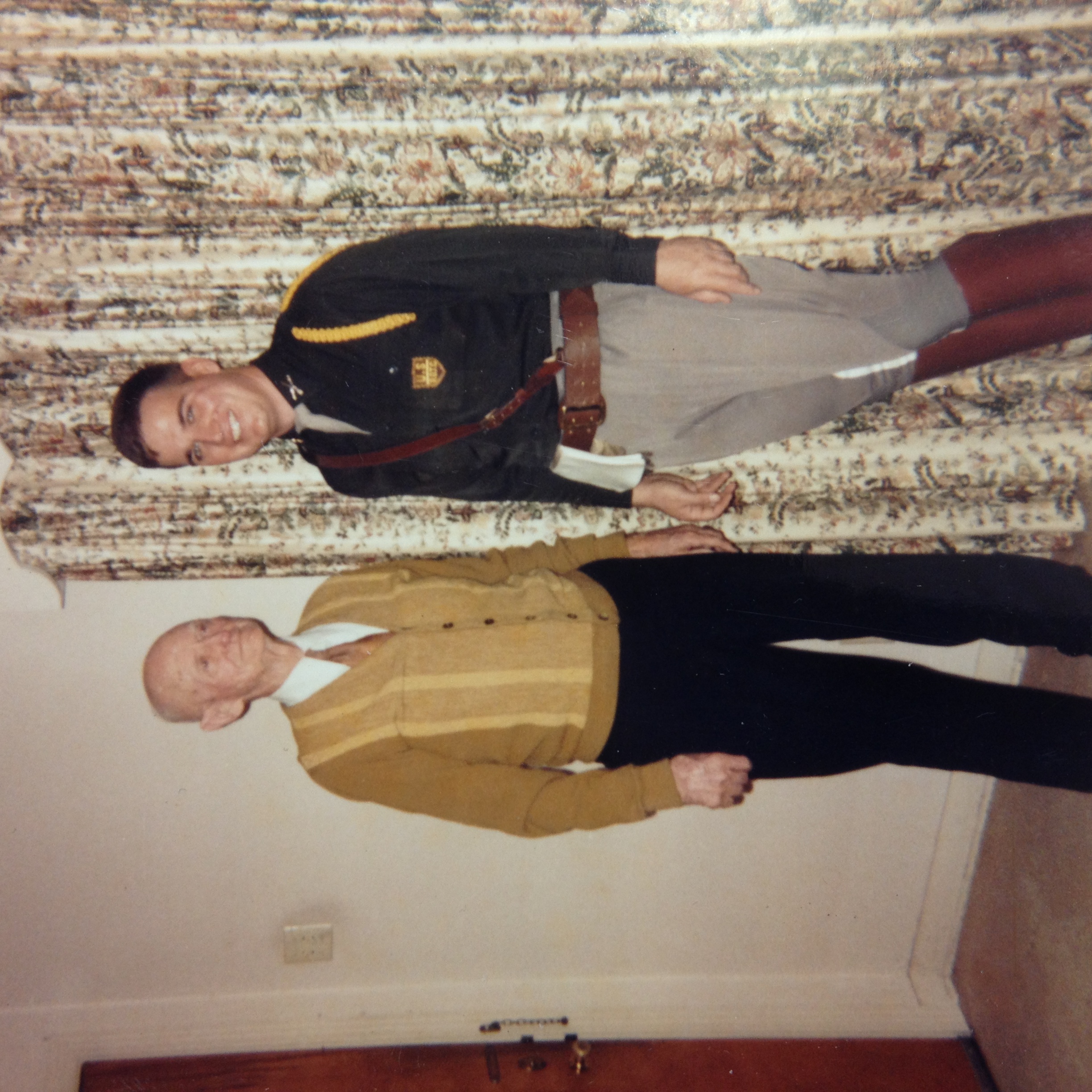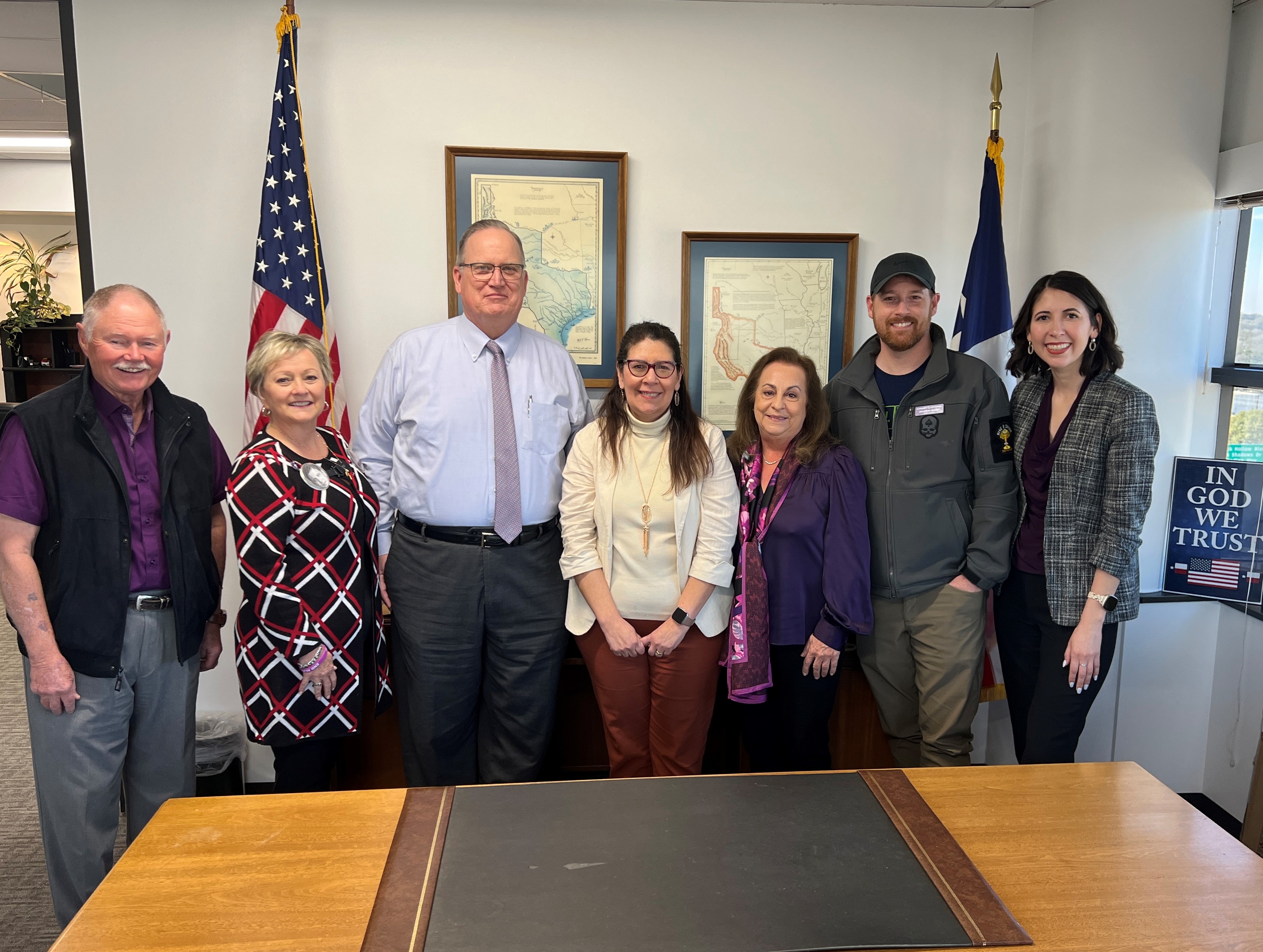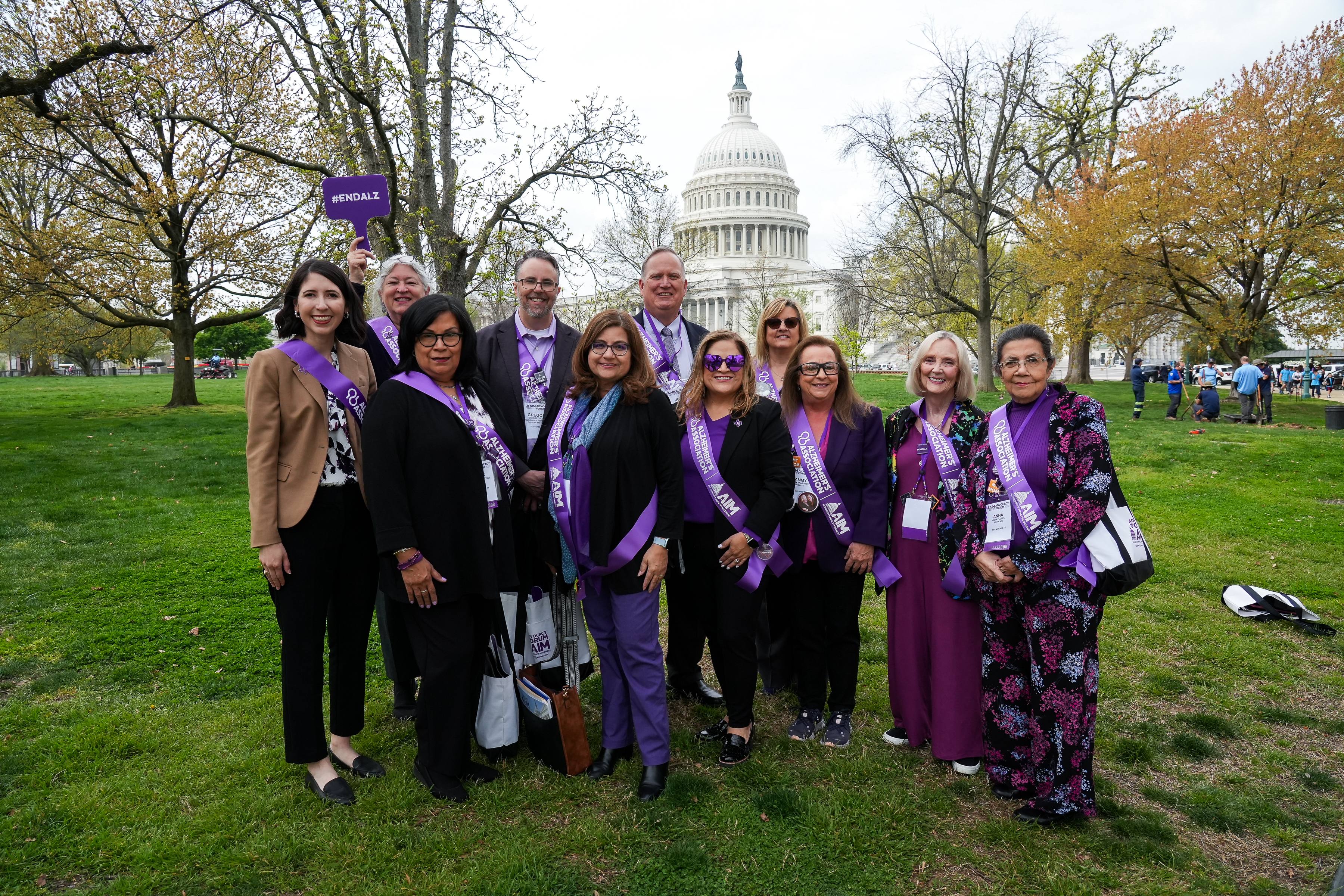Each month, we’re featuring an advocate who engages with policymakers to ensure priorities that improve the lives of people impacted by Alzheimer’s and all other dementia remain top-of-mind in Congress.
John Mathis grew up spending summers working at his grandfather’s ice cream business in Sherman, Texas. During that time, he saw his grandfather, Frank Ashburn, not only use his engineering mind to fix machinery and solve problems, but he also saw his deep commitment to serving his community. Today, John advocates to honor his grandfather’s memory and his community service.

“I have a picture of the man on my desk,” said John. “I remember him all the time. I think of him all the time. When I get stuck on a problem, I think about how he would change things.”
While John was attending college at Texas A&M, his grandfather began exhibiting symptoms of dementia. Frank was living in an independent living community at the time, but they said he needed more care. After spending some time in an assisted living community in Dallas, John’s mother and father brought Frank home.
“Mom had gone and looked at nursing homes and said, ‘I can’t do it. We’re bringing him home.’ And that’s what we did,” said John. “We brought him home and we found a way.”
Frank had lived an active life, running his business, dancing two to three times a week, walking everywhere. His routine had included counting the drawer from the previous day’s business and heading to the bank to make a deposit. His family soon learned that he would try to leave the house every day, trying to go to the bank to keep his routine.
“We set up a desk from his office,” said John. “We had a bank book, a bank bag and a ledger, and he would sit there. We put cash, and he would count it down. He put it together, and he would go to the front door, and one of us would say, ‘Granddad the bank is closed. It’s a bank holiday.’ And then he’d go out to our sun room, sit down and just look out the window, watch the birds and animals. While he was doing that and drinking a cup of coffee, we would go reset it back up. We didn’t know we were making memory stations, but we made our own version of the memory station for him, and that’s how we navigated through his day to help him cope.”
“There’s some great memories, even with the disease, that we still had together,” said John. “I knew he wasn’t going to remember them. But those moments of happiness together, I enjoyed those. I call them gifts.”
In the years since helping to care for his grandfather, John has spent about 15 years working in memory care and senior living. John has also started leading an Alzheimer’s support group in San Marcos, Texas to help families in his community.
In 2008, John became involved with the Walk to End Alzheimer’s, later serving as a Walk chair. About 10 years ago, when looking into how to increase his involvement in the fight to end Alzheimer’s and other dementia, he found advocacy.
“Being part of AIM takes it just a step further, making sure that our members of federal and state government understand the importance of passing legislation to fund research, for caregiver support, for training,” said John.

During his meetings with legislative offices, John always starts by asking whether they have a personal connection to the disease. During one meeting with a congressional staffer who did not have a personal connection, the staffer questioned whether addressing Alzheimer’s required government action. John responded, “Addressing Alzheimer’s is too big for one entity. This is a partnership, both private and public sectors working together. That’s how we get this done.”
By the following year, that staffer had been touched personally by the disease and was more interested in hearing about AIM’s policy priorities. For John, consistency is key to successful advocacy.
“That’s why I say consistently go, be prepared, and don’t give up,” said John. “If it doesn’t go your way when you’re talking to a staffer, that’s okay. You delivered the message. If you continue to deliver that message consistently, somewhere along the line, it’s going to hit.”
“Look how far we’ve come in the last 10 years,” said John. “If we continue at the rate we’re going, where are we going in the next 10 years? As an AIM advocate, that’s why I do what I do, because I’ve actually seen the impact that we have doing these meetings. And I truly believe that we’re going to make the impossible possible.”
Since becoming an advocate, John has attended the AIM Advocacy Forum in Washington, D.C., 10 times. Inspired by joining with hundreds of advocates who share his passion, John compares the event to a family reunion.
“[At this year’s AIM Advocacy Forum I saw] a gentleman that used to be able to stand up and talk to us,” said John. “To see his progression, I realized the sense of urgency and how important this is. When we go and [rally outside the White House], it makes a difference. When we go and talk to a staffer and explain to them what we’re here for, it makes a difference.”

“I advocate because I honestly believe we are going to find a cure for this horrible disease. Instead of sitting on the sidelines and hoping, because my grandfather, he jumped in the middle and served and found causes that he wanted to change. He got in there and did his part,” said John. “That’s why I step up and do my part as well. Finding the cure, that’s why I joined AIM.”
Learn how you can get involved and become an advocate like John.